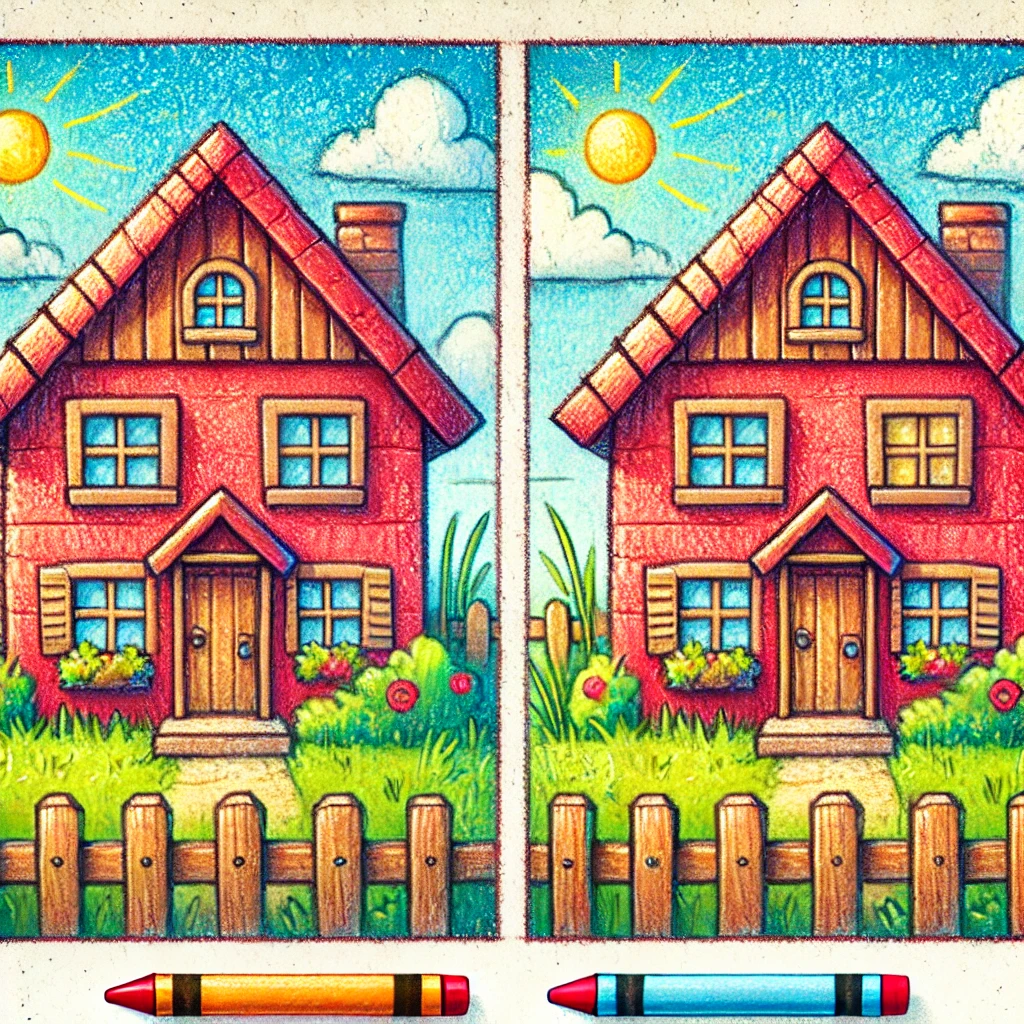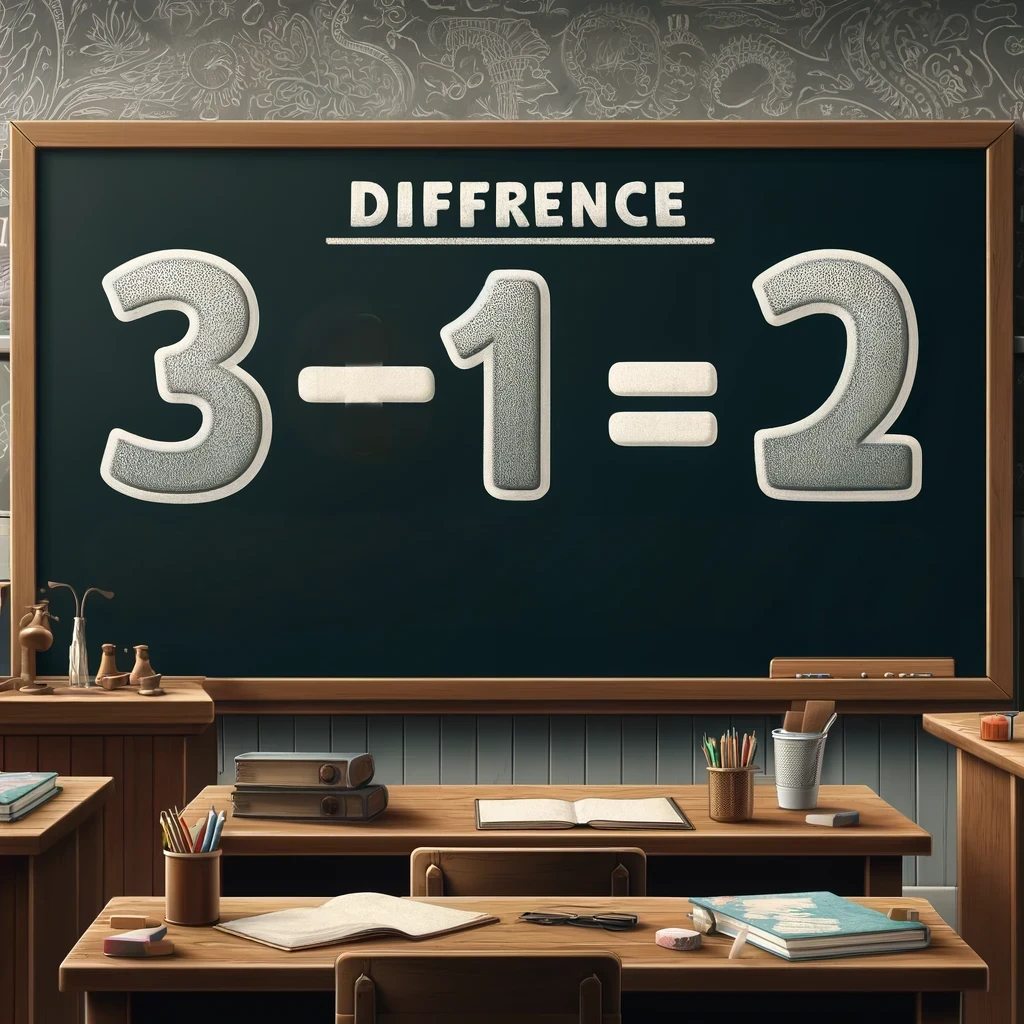Difference
Definition
Difference is a noun that refers to the quality or state of being unlike or dissimilar. It can describe a distinction between two or more things, as well as the result of subtracting one quantity from another in mathematics.
Parts of Speech
- Noun
Pronunciation
American English
- IPA Pronunciation: /ˈdɪf(ə)rəns/
- Respelling: DIF-er-uhns
British English
- IPA Pronunciation: /ˈdɪf(ə)rəns/
- Respelling: DIF-er-uhns
Etymology
The word "difference" originates from the Latin "differentia," meaning "distinction" or "variety," derived from "differre" (to carry apart or distinguish). It entered English in the late Middle Ages, referring to distinctions or contrasts between things.
Derivatives
- Different (adjective)
- Differentiate (verb)
- Differentiation (noun)
- Indifference (noun)
- Differentia (noun)
Synonyms
- Distinction
- Discrepancy
- Contrast
Antonyms
- Similarity
- Uniformity
- Agreement
Usage
The noun "difference" is used to highlight contrasts or distinctions, such as "There is a significant difference between the two products." It is also employed in mathematics to describe the result of subtraction, as in "The difference between 10 and 3 is 7."
Related Terms
- Variety: The quality or state of having diverse elements.
- Comparison: The act of examining similarities and differences.
- Divergence: The process or state of being different or developing in different directions.
Detailed Definitions
Noun
- The quality or state of being unlike or dissimilar: Refers to a characteristic that sets two or more things apart.
- Example: "There is a difference in quality between the two brands."
- A distinction or contrast between things: Describes a recognizable variation or discrepancy.
- Example: "Cultural differences can influence communication styles."
- The result of a subtraction operation in mathematics: Refers to the remainder when one number is subtracted from another.
- Example: "The difference between 15 and 8 is 7."
difference



🇨🇳 Mandarin (Simplified Chinese)
- 差异
- IPA: /ʈʂʰaː˨˩˦ iː˧˥/
- Respelling: chāyì
- 区别
- IPA: /tʂʰy˥˥ pjɛn˥˥/
- Respelling: qūbié
🇮🇳 Hindi
- अंतर
- IPA: /əntər/
- Respelling: antar
- भिन्नता
- IPA: /bʱɪnnətaː/
- Respelling: bhinnatā
🇪🇸 Spanish
- Diferencia
- IPA: /difeˈɾenθja/ (Spain) /difeˈɾensja/ (Latin America)
- Respelling: dife-REN-thee-a (Spain) / dife-REN-see-a (Latin America)
🇫🇷 French
- Différence
- IPA: /difɛʁɑ̃s/
- Respelling: di-FEY-rons
🇦🇪 Modern Standard Arabic
- فرق
- IPA: /farq/
- Respelling: farq
- اختلاف
- IPA: /ixtilaːf/
- Respelling: ikhtilāf
🇧🇩 Bengali
- পার্থক্য
- IPA: /pɔrthɔkːhjɔ/
- Respelling: pārthakhya
🇷🇺 Russian
- Различие
- IPA: /rəzˈlʲit͡ɕɪje/
- Respelling: razlitchiye
- Отличие
- IPA: /ɐtˈlʲit͡ɕɪje/
- Respelling: otlichie
🇵🇹 Portuguese
- Diferença
- IPA: /difɨˈɾẽsɐ/
- Respelling: dife-REN-sa
🇮🇩 Indonesian
- Perbedaan
- IPA: /pərbədaːn/
- Respelling: per-be-daan
🇩🇪 German
- Unterschied
- IPA: /ˈʊntɐʃiːt/
- Respelling: OON-ter-sheeat
- Differenz
- IPA: /dɪfeˈʁɛnt͡s/
- Respelling: dif-eh-RENTS
🇯🇵 Japanese
- 差
- IPA: /sa/
- Respelling: sa
- 違い
- IPA: /ʃɪgai/
- Respelling: chigai
🇻🇳 Vietnamese
- Sự khác biệt
- IPA: /səː xkʰaːc ɓjet˧˥/
- Respelling: sự khác biệt
🇰🇷 Korean
- 차이
- IPA: /ʧʰa.i/
- Respelling: chai
🇹🇷 Turkish
- Fark
- IPA: /faɾk/
- Respelling: fark
- Ayrım
- IPA: /ajrɯm/
- Respelling: ayrım
🇵🇰 Urdu
- فرق
- IPA: /farq/
- Respelling: farq
- تفاوت
- IPA: /təfɑːwat/
- Respelling: tafāwat





